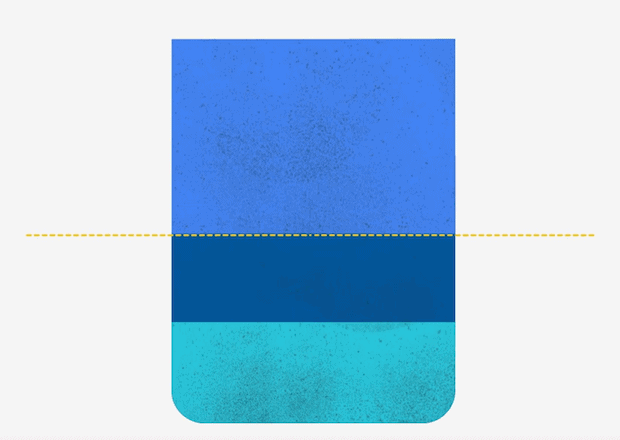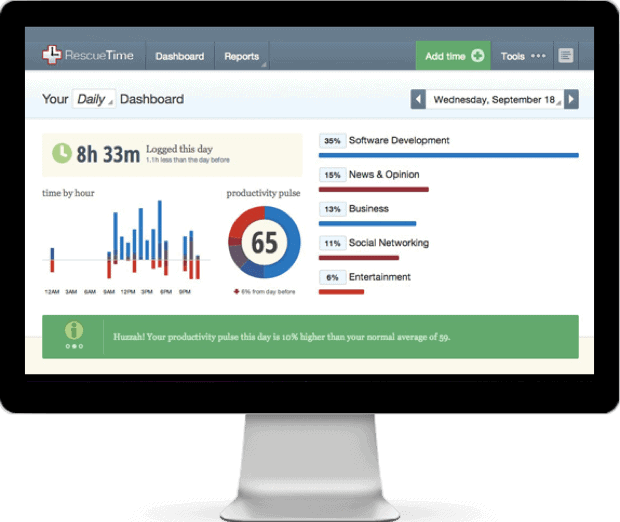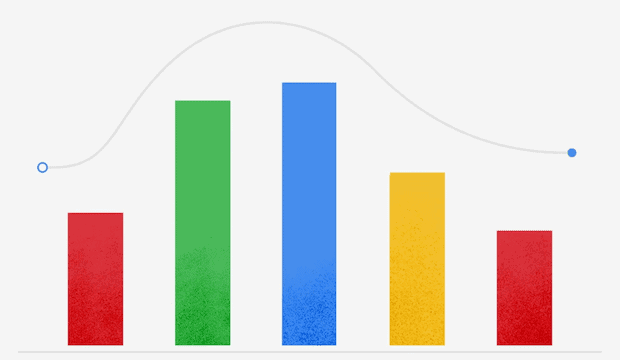
This guest post is by Paul Minors. Paul decided to write this post after hearing from so many people how hard it is to find the time to get any focused work done. You can listen to Paul discussing these ideas on his podcast. You can also sign up to Paul’s free email course, the 7-Day Productivity Plan and learn how to supercharge your productivity.
I’m sure you know the feeling where you have a big project or a task that’s going to require a decent amount of your energy and attention. You feel like the only way to do a good job is to really “get stuck in it.” But there are an endless number of things destined to distract you and ruin this precious time.
Creating the right conditions to do this kind of focused work is really hard. In fact, it’s one of the most common problems when it comes to personal productivity.
In Cal Newport’s book, Deep Work, the author states that the average worker spends roughly an hour a day doing this kind of focused work. What’s that, five hours a week? Less than 13% of your contracted hours? Surely that can’t be right? But once you start to think about your own workday, how many of those eight hours are you really engaged in your work and producing good results without getting distracted? When you factor in all of those toilet breaks, trips to the water cooler, and unnecessary conversations with your coworkers, it’s not a stretch to think this fact could really be true.
Creating the right conditions to support focused work is essential if we want to get more of the important stuff done. And that’s exactly what I’m going to talk about in this post.
You can also listen to my thoughts on the topic in this episode of my podcast: Click here to listen to the podcast.
What Is Focused Work?
Before we get to the nitty gritty, let’s have a closer look at what focused work really is.
You may have come across this article a few months ago by Google employee, Jeremiah Dillon. In the article, Jeremiah tells the story of how he emailed his colleagues requesting they re-consider how they manage their time. The email had the subject line: If you don’t have time to read this… read it twice. Now who wouldn’t click and open that email?
Jeremiah goes on to discuss two different work styles: the “maker” and the “manager.”
“The manager’s day is cut into 30-minute intervals, and they change what they’re are doing every half hour. Sort of like Tetris — shifting blocks around and filling spaces.

The maker’s day is different. They need to make, to create, and to build. But, before that, they need to think. The most effective way for them to use time is in half-day or full-day blocks. Even a single 30-minute meeting in the middle of “Make Time” can be disruptive.”

This is a really simple idea and I bet you can put yourself into one of these categories fairly easily.
The article argues that we all need to have enough “make time” as this is where the magic happens. This is the time when we get our real work done.
This email had such an impact that Google decided to make it into video!
Why We Need Focused Time
We all need to set aside a set amount of time in our busy schedules for “focused work” or “make time.” This is where the rubber meets the road; it’s when all planning and organizing stops and actual work can take a front seat. It’s when you actually get to do all the things you’ve up until now simply talked about and planned.
As we’ve already talked about on the Productivityist blog, Cal Newport’s “deep work” can be defined as:
High-Quality Work Produced = (Time Spent) x (Intensity of Focus)
It stands to reason then that if you double your focus intensity, you will in effect need only half the amount of time that task takes while still reaching the same outcome. Or you can choose to spend an equal amount of time on a task and with more focus, produce a higher quality outcome as a result.
I hope you can see how focused work goes hand-in-hand with your ability to focus and therefore, produce a better result.
What Prevents Us From More Focus?
In order to “get into the zone” and improve your focus intensity, you need to address a number of distractions. These distractions can even include your family members. While you love spending time with them, but it’s still important to have some alone time once in a while.
- Other people (the kids). Your kids (if you have them) want your time and attention and in many cases are arguably the hardest to control. Hence, why Jeremiah chose to send an email to his colleagues asking them to respect his “make time.”
- Social media (your spouse). With so many Tweets, articles, videos and snaps to keep up with, no wonder we get so distracted during the day. Similar to how you and your spouse have a number of “projects” in your life, all these different social networks want the same thing – your attention. If you’re going to get some focused work done, you can’t give too much of your attention to them.
- Email (the sneaky cousin). Social media is a lot like having a sneaky cousin. Let me explain: email pretends to be important (and sometimes is), but if we give it too much attention, will abuse our time and disrupt focused work. It’s much better to manage email in intervals throughout the day.
- Meetings (the loud uncle). Another sneaky relative, meetings are often a waste of time when not properly planned or managed. Before accepting your next meeting invite, question the purpose of the meeting, the amount of time required and whether you even need to be there.
- Small and easy tasks (your mum). Sometimes, when it all gets a big much, it’s nice to return home to some of Mum’s home cooking. Ticking off small and easy tasks is a nice way of creating a false sense of productivity. Yes, these things need to get done, but because they’re easy, they’re often done before focused work as a way of postponing the more difficult work.
How To Spend More Time on Focused Work
Now for the bit you’ve been waiting for. How do you actually create the right conditions to do more focused work?
1. Schedule your “make time”
This is a very quick and easy way of committing to a certain amount of focused work every week. As Jeremiah requested when emailing his colleagues:
“I have Make Time on my calendar. Please don’t schedule over it, and I promise to do my best not to schedule over yours.”
Let’s say you want to get at least 10 hours of focused work done every week (not a tall order). That’s 2 hours a day. You can block this on your calendar and for even more effect, I would suggest setting it to repeat so your focused work starts at the same time every day. Say 9 – 11 am. That way, your colleagues will come to learn that this is your time when you are not to be disturbed.

If you use Google Calendar with your colleagues, you can view your one another’s appointments so you know when they’re free. If you don’t want them knowing what’s on your calendar, you can set the event details to private as well. The event will still appear, but no title or details will be shown.
2. Eliminate the distractions
Before a doctor can treat a problem, they need to diagnose the illness.
Whenever you get distracted, make a list of the things that are grabbing your attention. Every time something distracts you again, add a tally to that item. This allows you to work out what’s distracting you and which items on the list are more distracting than others.
If you’re still not sure, use an app like RescueTime to track your website and app usage to get a nice clear picture of where you digital time is being spent.

Once you understand the problem, you can take steps to eliminate the problem.
If social media is the big culprit, look at using a website blocker like Stay Focused (Google Chrome) or Self Control (Mac app).
If the problem is other people, try talking to them. Or copy Jeremiah’s email and send it to them.
The key here is to identify the causes of your distraction and then take steps to remove it from the equation. With fewer distractions, you can focus more and decrease the overall time you need to complete a task.
3. Change up your environment
Productivity guru, Julia Roy, recently wrote about having “work only zones.” Well, what about “focus only” zones? Try and find somewhere you can associate with focused work and go there on a regular basis.
If you work in an office, is there somewhere you can go, perhaps a small meeting room, for a short period of time to get your focused work done? Or maybe you have a certain coffee shop or library that helps you to get in the zone.
Changing environments like this helps to remove a lot of the distractions that could otherwise highjack your attention. It’s also a great visual cue to other people that you’re not to be disturbed. If you’ve moved from your normal place of work to a separate space, clearly there’s a reason and most people will know not to disturb you.
I also like listening to instrumental music, movie soundtracks and anything without lyrics as a way of blocking out distracting noise and other people’s conversations.
Here are some of my personal favourites:
- Dive by Tycho
- Haunt Me by Tim Hecker
- The Secret Life of Walter Mitty (original motion picture soundtrack)
- The Blue Hour by Frederico Albanese
4. Align your “focused work” with “prime time”
We all have different times that we work really well at. Finding your most productive time (we call this “prime time”) and aligning this with your focused work is a recipe for success.

To find your “prime time”, think about
- When do you feel best? – If you’re not in the right state of mind, it’s very hard to get focused work done.
- When can you find some uninterrupted silence? – Have you thought about getting to work a little earlier so you can get some focused work done before everyone else arrives?
- When are you less likely to make excuses? – Friday afternoon is never a good time for focused work (valid excuse). But what about Wednesday at 9 A.M.? Mid-week when motivation and energy levels peak can be a great time to work (no excuses).
5. Get the “managers” on board
Not just your actual “managers” but also the other people who act like managers by breaking up their day into small chunks and constantly change their plan.
If these people are distracting you, talk to them. Explain that you’d like to get more focused work done. They have no excuse to get angry with you about this and who knows, maybe you can even teach them a thing or two about getting more focused work done. Explain that when they ask: “Do you have 5 minutes?” that it often takes a lot longer than 5-minutes to refocus after being distracted (and 5-minute conversations often end up more like 10 or 15 minutes).
Getting these people on board is key if you want to make sure the managers in your workplace aren’t dragging you into unnecessary meetings and stealing small blocks of your time throughout the day.
Key Takeaways
- Everyone needs to spend time on “focused work” (or “make time”) in order to get the most important and high-impact tasks done.
- Eliminating the distractions that interrupt your focused work starts with identifying the most distracting people, apps, websites and habits that highjack your attention.
- Schedule time to do your focused work and make sure this aligns with when you feel the most productive.
- If possible, find a new environment where you can get stuck into your focused work without being distracted.
- Get your friends, colleagues, spouse (whoever you need) on board with the plan and make sure they know when you want to be left alone.